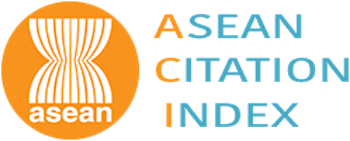ผลของโปรแกรมบำบัดด้วยช้างไทยต่อความสามารถพื้นฐานและ พฤติกรรมการปรับตัวในบุคคลออทิสติก: การศึกษานำร่อง
Keywords:
ออทิสติก, การนำสัตว์มาช่วยในการบำบัด, กิจกรรมบำบัด, พฤติกรรมการปรับตัว, Autistic, animal-assisted therapy, occupational therapy, adaptive behaviorAbstract
The Results of Thai Elephant-assisted Therapy Program on Basic Sensory-Motor Performance and Adaptive Behavior in Individuals with Autism: a Pilot Study
Satiansukpong N, Vittayakorn S, Pongsaksri M, Sung-US, Pedugsorn M, Phiraban C, Sasat D
Department of Occupational Therapy, Faculty of Associated Medical Sciences, Chiang Mai University
Objectives: The objectives of this pilot study were to examine the result of the Thai Elephant -assisted Therapy Program on (1) basic sensory-motor performance and (2) adaptive behavior in individuals with Autism.
Study design: A before and after design
Setting: Thai Elephant Conservation Center, Lampang and Occupational Therapy Clinic, Chiang Mai University.
Subjects: Four autistic individuals aged between 11-18 years whose parents gave informed consent
Methods: Sensory-motor performance, including sensory processing, balance and postural control as well as the adaptive behavior before and after providing the treatment program was evaluated. The treatment program was provided under supervision of occupational therapists four days a week continuously for three weeks. Data were analyzed by using descriptive statistics.
Results: The basic sensory-motor performance was improved. The mean sensory processing was increased 11.45 percents. The total balance scores of participants were increased 69.16 percents, while the means of postural control in supine flexion and prone extension were increased 6.85 and 12.09 percents, respectively. All four had improvement in adaptive behavior.
Conclusion: Under supervision of occupational therapists, the Thai Elephant-assisted therapy program was able to improve the basic sensory-motor performance and adaptive behavior of the four autistic individuals.
บทคัดย่อ
วัตถุประสงค์: เพื่อศึกษาผลของโปรแกรมบำบัดด้วยช้างไทย ต่อความสามารถพื้นฐานและพฤติกรรมการปรับตัวของบุคคล ออทิสติก
รูปแบบการวิจัย: การศึกษาเปรียบเทียบผลก่อนและหลัง ได้รับโปรแกรมบำบัดด้วยช้างไทย
สถานที่ทำการวิจัย: ศูนย์อนุรักษ์ช้างไทย จังหวัดลำปาง สังกัดองค์การอุตสาหกรรมป่าไม้ และคลินิกกิจกรรมบำบัด คณะเทคนิคการแพทย์ มหาวิทยาลัยเชียงใหม่
กลุ่มประชากร: ผู้รับบริการออทิสติก อายุระหว่าง 11-18 ปี ที่ผู้ปกครองให้คำยินยอมให้เข้าร่วมการศึกษา
วิธีการศึกษา: ผู้รับบริการออทิสติก เข้าร่วมโปรแกรมช้างบำบัด จำนวน 4 ราย แต่ละรายได้รับการประเมินความสามารถ พื้นฐานและพฤติกรรมการปรับตัวกอ่ นและหลังการใหโ้ ปรแกรมบำบัด ด้วยช้างไทย โปรแกรมบำบัดด้วยช้างไทยภายใต้การดูแลของ นักกิจกรรมบำบัดเป็นการฝึกแบบเต็มวัน จำนวน 4 วันต่อ สัปดาห์ ต่อเนื่องกันเป็นเวลา 3 สัปดาห์ การวิเคราะห์ข้อมูล ใช้สถิติเชิงบรรยาย
ผลการศึกษา: ความสามารถพื้นฐานของอาสาสมัครออทิสติก ทั้ง 4 ราย เพิ่มขึ้น โดยคะแนนเฉลี่ยพฤติกรรมการบูรณาการ ประสาทรับความรู้สึกเปลี่ยนแปลงเพิ่มขึ้นร้อยละ 11.45 คะแนนเฉลี่ยความสามารถการทรงตัวเปลี่ยนแปลงเพิ่มขึ้นร้อยละ 69.16 นอกจากนี้ ค่าเฉลี่ยความสามารถการควบคุมการทรง ท่าในท่า supine flexion และ prone extension เปลี่ยนแปลงเพิ่มขึ้นร้อยละ 6.85 และ 12.09 ตามลำดับ พฤติกรรมการ ปรับตัวของอาสาสมัครทั้ง 4 ราย ดีขึ้น
สรุป: ภายใต้การดูแลของนักกิจกรรมบำบัด โปรแกรมบำบัด ด้วยช้างไทย แบบเต็มวัน 4 ครั้งต่อสัปดาห์ ต่อเนื่องเป็นเวลา 3 สัปดาห์ ช่วยให้ความสามารถพื้นฐานและพฤติกรรมการ ปรับตัวของบุคคลออทิสติก ทั้ง 4 ราย ดีขึ้น





